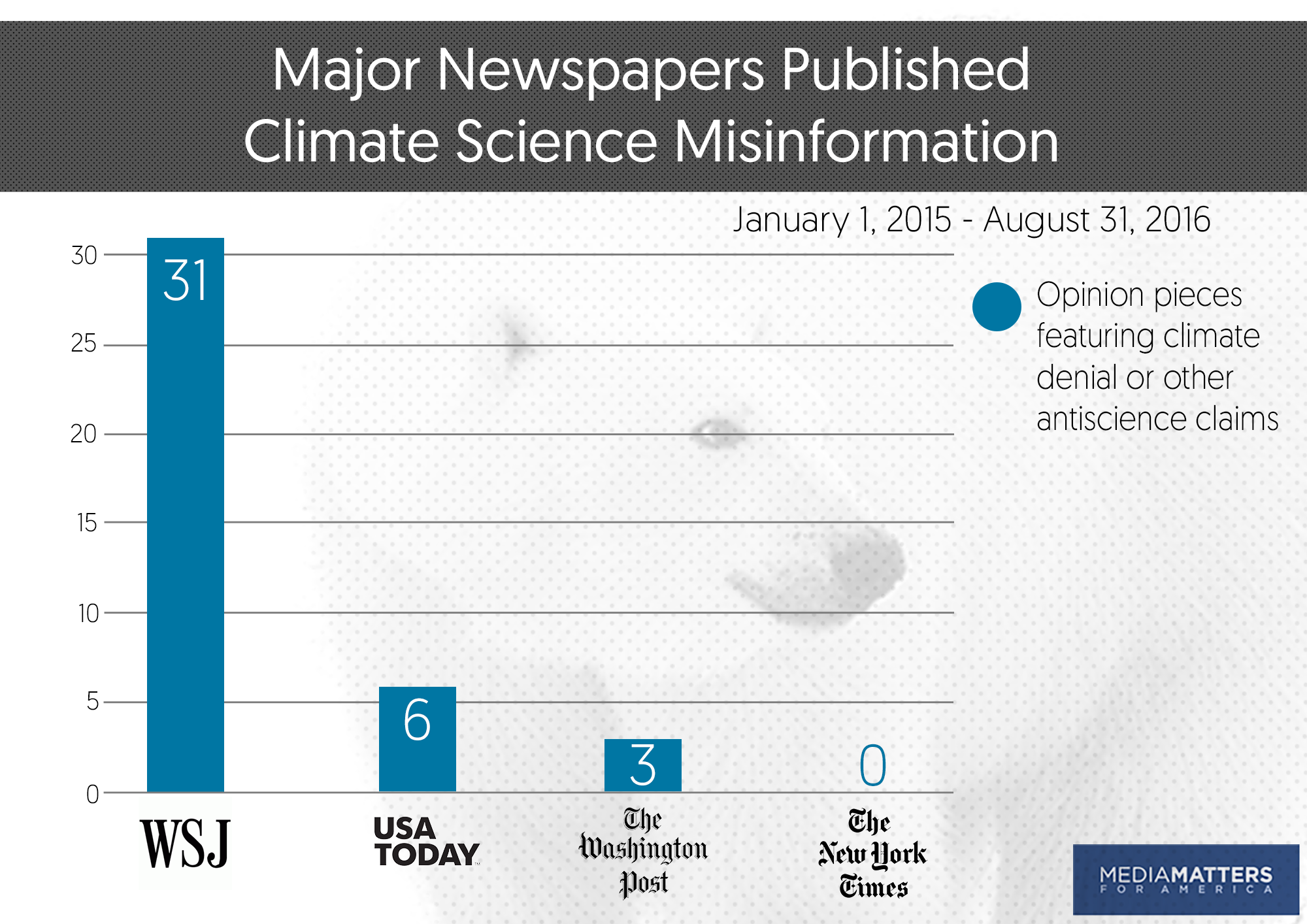Will Bret Stephens' Climate Denial Threaten The Integrity Of The NYT Opinion Section?
The NY Times’ Climate Denial-Free Opinion Section Is Unique Among Major Newspapers, But Bret Stephens Could Change That
Written by Kevin Kalhoefer
Published
A Media Matters study conducted last year found that over a year-and-a-half period, The New York Times was the only one of four top U.S. newspapers that did not publish climate science denial and misinformation about climate change in its opinion pages. But the paper’s recent hire of Wall Street Journal columnist and climate denier Bret Stephens may tarnish the Times’ otherwise stellar record when it comes to covering climate change.
On April 12, the Times announced that it was hiring Stephens as its newest columnist. The paper’s editorial page editor defended the decision, saying characterizations of Stephens as a climate denialist were “unfair” because “millions of people” agree with him (an argument that has rightly been criticized for presenting a false equivalency on the reality of climate change). In a statement to The Huffington Post regarding his hiring, Stephens described himself as “climate agnostic,” adding that it “seems to be the case” that “man-made carbon emissions” are “probably largely” causing the earth to warm (an understatement given that the overwhelming majority of climate scientists say human activity is the primary cause of global warming).
But Stephens’ attempt to cast himself as occupying some sort of middle ground on climate change belies his lengthy record of outright climate denial in The Wall Street Journal, where he often made extreme comments about climate change, calling it a “sick-souled religion,” comparing those who accept and are concerned about global warming to “closet Stalinists,” and declaring in 2010 that “global warming is dead.” Stephens has also promoted the myth that climate scientists predicted global cooling in the 1970s and cited fiction writer Michael Crichton to discount the scientific consensus on global warming. And as recently as 2015, Stephens dismissed climate change as an “imaginary enemy.”
Stephens’ hiring is especially worrying considering that a Media Matters study examining the opinion pages of four national newspapers -- the Times, the Journal, The Washington Post, and USA Today -- found that the Times was the only one that avoided publishing climate science denial in its opinion pages. Notably, for the newspaper with the next-lowest amount of climate science denial, The Washington Post, all three instances of denial came from a single columnist: George Will.

In addition to tarring the Times’ opinion pages, the paper’s hiring of Stephens could also mar the The New York Times’ stellar climate coverage. The Times has provided readers with explainers on the position of 2016 presidential candidates and current administration and elected officials on climate change, employed visual storytelling to detail on-the-ground climate impacts, chronicled local responses to climate change, and conducted an in-depth investigation of the troubled Kemper project in Mississippi to build a first-of-its-kind “clean coal” power plant.
Just this week, the New York Times magazine devoted an issue to climate change that covered topics such as geoengineering, climate change-induced migration in regions around the world, the threat rising sea levels pose for coastal properties, and an increase in “the potential for viruses like Zika” due to climate change.
And at a time where broadcast network coverage of climate change is seeing a drastic decline, the Times has been expanding its climate team. While announcing that Hannah Fairfield was joining the paper as the new climate editor in January, Times editors wrote, “No topic is more vital than climate change. … With Hannah’s appointment, we aim to build on what has already been dominant coverage of climate change and to establish The Times as a guide to readers on this most important issue.”
Let’s just hope that Bret Stephens’ “agnosticism” doesn’t misguide those very same readers.